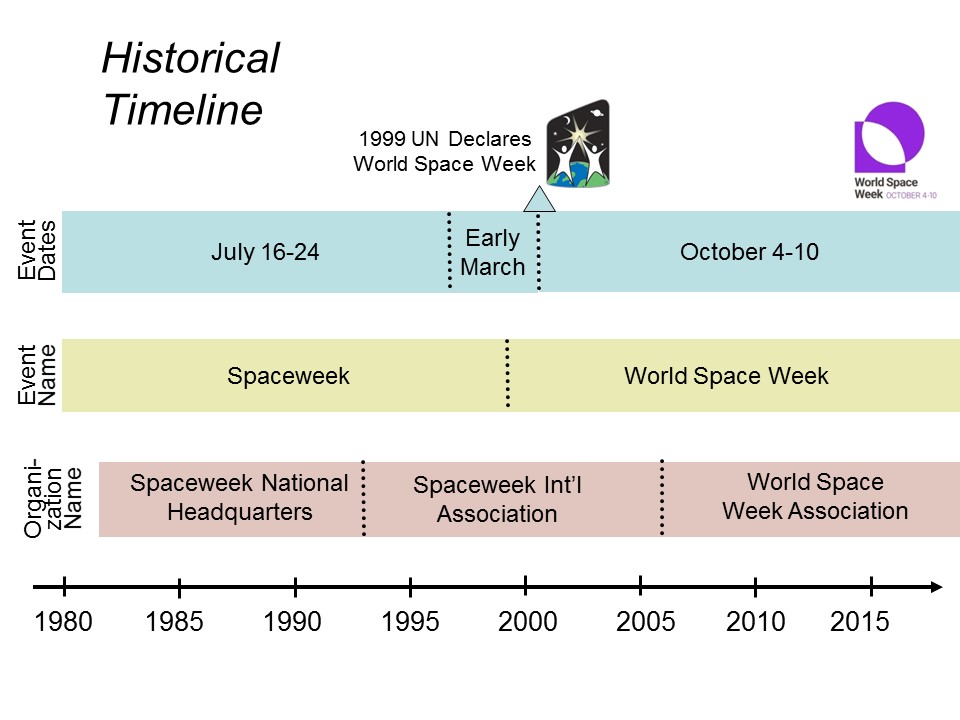World Space Week History
The Early Days
The World Space Week Association (WSWA) began in 1980 as the coordinator of “Spaceweek,” a celebration of the first Moon landing, each July 16-24. The first celebration in Houston that year was led by Ernie Hillje, Troy Welch, David Koch, and Dennis Stone. In 1981 they formed “Spaceweek National Headquarters” to organize a nationwide celebration in the United States. By 1999 Spaceweek had spread to over 15 nations. (See “Historical Timeline” below.) It was in 1999 that the UN General Assembly declared “World Space Week” to be held every year from 4 to 10 October. The organization offered to the UN to serve as global coordinator of World Space Week, and helped organize the first such celebration in 2000. Today, the Association continues to build the size and impact of this annual celebration of space, the largest in the world.
World Space Week Themes
Every year the World Space Week Association Board of Directors selects a theme to highlight an aspect of space with broad appeal to humanity. This theme provides guidance to World Space Week participants on the content of their programs. Event holders are encouraged to address the current year’s theme in their events and publicity.
2022 – Space and Sustainabiltiy
2021 – Women in Space
2020 – Satellites Improve Life
2019 – The Moon: Gateway to the Stars
2018 – Space Unites the World
2017 – Exploring New Worlds In Space
2016 – Remote Sensing – Enabling our Future
2015 – Discovery
2014 – Space: Guiding Your Way
2013 – Exploring Mars – Discovering Earth>/a>
2012 – Space for Human Safety and Security
2011 – 50 Years of Human Spaceflight
2010 – Mysteries of the Cosmos
2009 – Space for Education
2008 – Exploring the Universe
2007 – 50 Years in Space
2006 – Space for Saving Lives
2005 – Discovery and Imagination
2004 – Space for Sustainable Development
2003 – Space: Horizon Beyond Earth
2002 – Space and Daily Life
2001 – Inspiration from Space
2000 – Launching the Space Millennium
